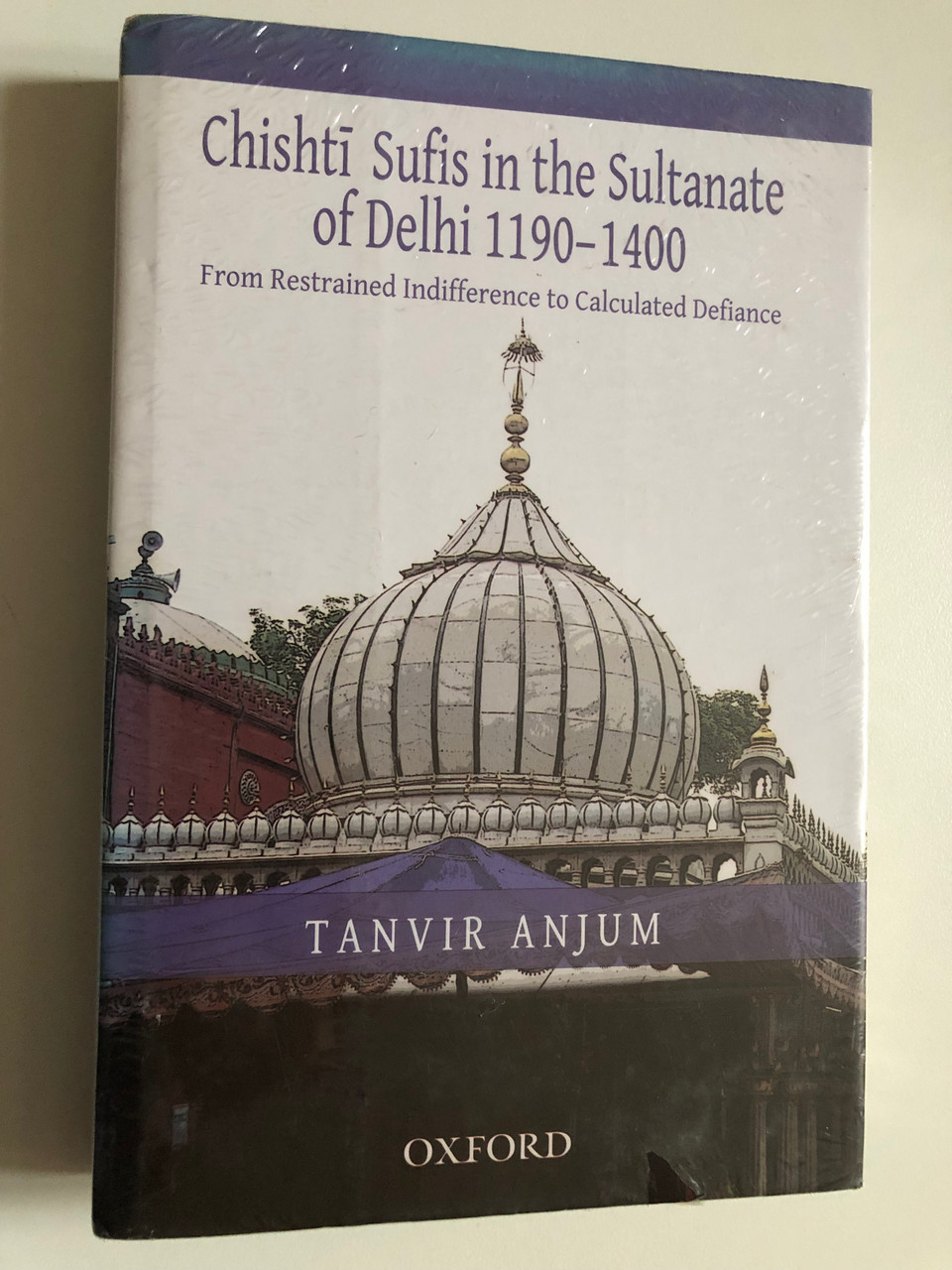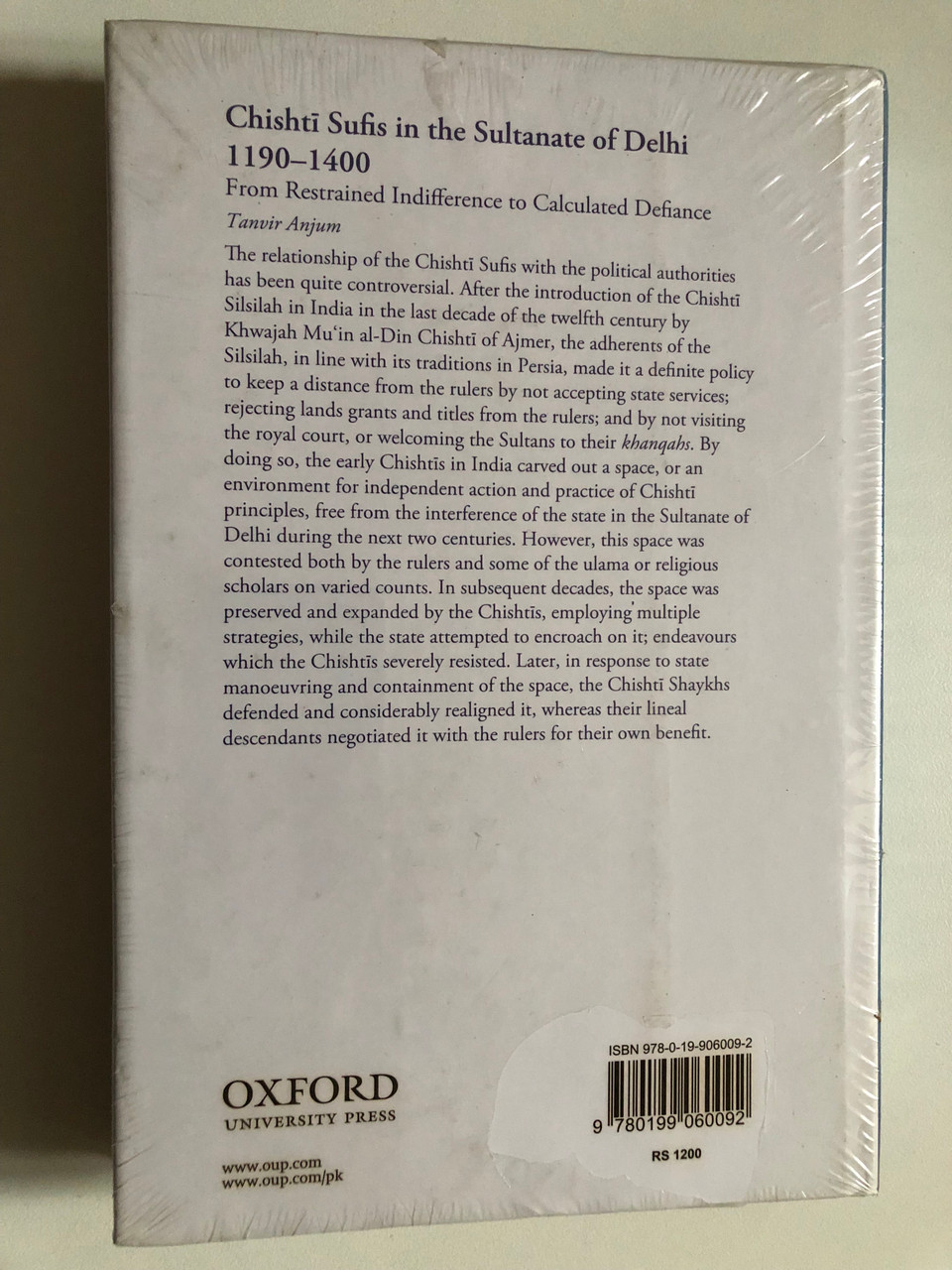Description
Chishti Sufis in the Sultanate of Delhi 1190-1400: From Restrained Indifference to Calculated Defiance
ISBN: 9780199060092 / 0199060096
Product Features
- Author: Tanvir Anjum
- Publisher: Oxford University Press
- Publication Year: 2011
- ISBN: 978-0199060092
- Format: Hardcover
- 350 Pages
- Language: English
- Academic Category: Islamic Studies/History
Overview
A scholarly examination of the complex relationship between Chishti Sufis and political authorities in medieval India. The book covers the period from 1190 to 1400, analyzing how the Chishti order, following its introduction to India by Khwajah Mu'in al-Din Chishti of Ajmer, maintained its independence from state control while navigating complex political landscapes. The work explores the evolution of Chishti-state relations from initial detachment to strategic resistance.
The relationship of the Chishti Sufis with the political authorities has been quite controversial. After the inception of the Chishti Silsilah in India in the last decade of the twelfth century by Khwajah Mu'in al-Din Chishti of Ajmer, the Chishtis, in line with their traditions in Persia, made it a definite policy to keep a distance from the rulers by not accepting state services, rejecting lands grants and titles from the rulers, and by not visiting the royal court, or welcoming the Sultans to their khanqahs. By doing so, the early Chishtis in India carved out a space, or an environment for independent action and practice of Chishti principles, free from the interference of the state in the Sultanate of Delhi during the next two centuries. However, this space was contested both by the rulers and some of the ulama or religious scholars on varied counts. In subsequent decades, the space was preserved and expanded by the Chishtis, employing multiple strategies, while the state tried to encroach on it, which the Chishtis severely resisted. Later, in response to state manoeuvring and containment of the space, the Chishti Shaykhs defended and considerably realigned it, whereas their descendants negotiated it with the rulers for their own benefits.
Interesting Facts
- Examines the first two centuries of Chishti presence in India
- Details the order's policy of refusing state patronage and services
- Analyzes the contested space between spiritual and political authority
- Documents the transition from passive resistance to active defiance
- Explores how later generations negotiated with rulers
- Highlights the order's strategies for maintaining autonomy
- Discusses the role of ulama (religious scholars) in these dynamics
Publishers
Oxford University Press www.oup.com www.oup.com.pk
Hashtags
#ChishtiSufis #IslamicHistory #SouthAsianStudies #SufiStudies #DelhiSultanate #OxfordPublications #IslamicScholarship


















